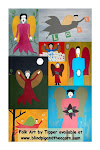 For everyone out there who knows me, you know my love of sports, esp. baseball. The World Series is nearing. Feeling nostalgic, I wondered what happened in baseball 100 years ago. This is what I found on Timelines.com.
For everyone out there who knows me, you know my love of sports, esp. baseball. The World Series is nearing. Feeling nostalgic, I wondered what happened in baseball 100 years ago. This is what I found on Timelines.com.http://timelines.com/perspectives/7dfbdbaa03856c934ac7e79e383a96fc
THE WORLD SERIES 100 years ago
October 17 1910 to October 23 1910
The first decade of World Series baseball came to a close as two regulars, the Chicago Cubs (making their fourth appearance) and Philadelphia Athletics (making their second) went head-to-head for the championship title. Both teams were powerhouses with the A's chalking one-hundred two victories and winning their pennant by fourteen games. The A's boasted three .300 hitters with Eddie Collins, Rube Oldring and Danny Murphy and a thirty-one game winner in Jack Coombs, a twenty-seven year-old righthander who was 12-12 the previous season. Both teams suffered devastating injuries and would not be at full strength for the Series. The Cubs had lost second baseman Johnny Evers to a broken ankle and Philadelphia was missing Oldring with a broken leg and pitcher Eddie Plank who was suffering from an arm ailment.
Although A's manager Connie Mack was handicapped with the loss of one of his starting pitchers, he remained confident in his other aces Jack Coombs and Chief Bender. Bender, coming off his first twenty victory season in the Major Leagues (he was 23-5), opposed the Cubs' Orval Overall in Game 1 of the Series. The matchup proved a mismatch, with Bender pitching a one-hitter into the ninth inning and Overall departing after allowing three runs and six hits in the first three innings. The A's, getting three hits and two RBIs from Frank Baker, scored a 4-1 victory as Bender completed a three-hitter with eight strikeouts.
In Game 2, Coombs maintained his team's momentum with a solid, but unspectacular Series leading performance. Although he lasted a complete game, he surrendered eight hits and nine walks while managing a 9-3 victory. Philadelphia had consecutively beaten two of Chicago's top aces and prepared to tee off on a third against Series veteran, Ed Reulbach. The A's came out swinging in Game 3 and drove Reulbach off of the mound in the second inning after tallying three runs. Harry McIntire took over in the third with a 3-3 tie, but was shelled for four runs in the 1/3 inning. The Cubs continued to collapse and before the inning was over, the A's had tacked or a fifth run en route to a 12-5 romp. Coombs remained unbeatable while pitching with only one day of rest. Playing well on both sides of the plate, he only gave up six hits and had three hits and three runs batted in.
Suddenly, the mighty Chicago Cubs, considered sports first official dynasty, found themselves on the brink of elimination. Realizing that Philadelphia's advantage was the direct result of poor pitching, the Cubs put their faith into the right arm of rookie Leonard (King) Cole, who had just completed a 20-4 season. The twenty-four year-old newcomer handled the pressure well, but was pulled in the eighth inning, while trailing 3-2. Hanging on by a thread, Chicago managed to get something started in the ninth when playing Manager Frank Chance tripled home Frank Schulte. Then, in the tenth, Chicago's Jimmy Sheckard came through with a two-out, game-winning single against Bender, who had gone the distance, but paid for it with a 4-3 loss.
October 17 1910 to October 23 1910
The first decade of World Series baseball came to a close as two regulars, the Chicago Cubs (making their fourth appearance) and Philadelphia Athletics (making their second) went head-to-head for the championship title. Both teams were powerhouses with the A's chalking one-hundred two victories and winning their pennant by fourteen games. The A's boasted three .300 hitters with Eddie Collins, Rube Oldring and Danny Murphy and a thirty-one game winner in Jack Coombs, a twenty-seven year-old righthander who was 12-12 the previous season. Both teams suffered devastating injuries and would not be at full strength for the Series. The Cubs had lost second baseman Johnny Evers to a broken ankle and Philadelphia was missing Oldring with a broken leg and pitcher Eddie Plank who was suffering from an arm ailment.
Although A's manager Connie Mack was handicapped with the loss of one of his starting pitchers, he remained confident in his other aces Jack Coombs and Chief Bender. Bender, coming off his first twenty victory season in the Major Leagues (he was 23-5), opposed the Cubs' Orval Overall in Game 1 of the Series. The matchup proved a mismatch, with Bender pitching a one-hitter into the ninth inning and Overall departing after allowing three runs and six hits in the first three innings. The A's, getting three hits and two RBIs from Frank Baker, scored a 4-1 victory as Bender completed a three-hitter with eight strikeouts.
In Game 2, Coombs maintained his team's momentum with a solid, but unspectacular Series leading performance. Although he lasted a complete game, he surrendered eight hits and nine walks while managing a 9-3 victory. Philadelphia had consecutively beaten two of Chicago's top aces and prepared to tee off on a third against Series veteran, Ed Reulbach. The A's came out swinging in Game 3 and drove Reulbach off of the mound in the second inning after tallying three runs. Harry McIntire took over in the third with a 3-3 tie, but was shelled for four runs in the 1/3 inning. The Cubs continued to collapse and before the inning was over, the A's had tacked or a fifth run en route to a 12-5 romp. Coombs remained unbeatable while pitching with only one day of rest. Playing well on both sides of the plate, he only gave up six hits and had three hits and three runs batted in.
Suddenly, the mighty Chicago Cubs, considered sports first official dynasty, found themselves on the brink of elimination. Realizing that Philadelphia's advantage was the direct result of poor pitching, the Cubs put their faith into the right arm of rookie Leonard (King) Cole, who had just completed a 20-4 season. The twenty-four year-old newcomer handled the pressure well, but was pulled in the eighth inning, while trailing 3-2. Hanging on by a thread, Chicago managed to get something started in the ninth when playing Manager Frank Chance tripled home Frank Schulte. Then, in the tenth, Chicago's Jimmy Sheckard came through with a two-out, game-winning single against Bender, who had gone the distance, but paid for it with a 4-3 loss.
I haven't had time to watch the season, but definitely will be peeking at the World Series. Perhaps it's the time of year which makes it that much more exciting! :))




















































7 comments:
This is baseball as it should be. No drug enhancers... just good old fashioned hard work to exercise and lift weights for strength. Great post!
I do prefer football myself... faster pace. lol
Hi Janeen! Everything seemed much simpler then, didn't it? And it had been in existence for merely a decade! I would love to transport back! ;)
So baseball is 110 years old? Interesting. Didn't know that. K.
Oh, and btw, is that Bruce Springsteen singing? Love him. :)
Hi K.! I was surprised by the following information. I did think it was older than 110 years. But I suppose, baseball, as we now know it, was far more different since its inception.
Yep, it's the boss! Although on the playlist, it's Bruce Springstone!
Baseball, America's pastime, is more than 200 years old. According to legend, the sport's originator was U.S. Army officer Abner Doubleday (1819-1893), who was credited with inventing and naming the game in 1839, while he was attending school in Cooperstown, New York (the site of the Baseball Hall of Fame and Museum). But in 2004 a document was uncovered in Pittsfield, Massachusetts, citing a 1791 bylaw prohibiting the playing of baseball too close to (within 80 yards of) the town's meeting hall. Historians verified the authenticity of the document and its date. This is believed to be the earliest written record of the game-and it establishes that the stick-and-ball sport was being played 42 years before Doubleday's involvement. Baseball historians have long acknowledged that the sport, which is similar to the English games of cricket and rounders, had not one father, but thousands. Although the 2004 discovery indicates that the game was already in existence in 1791, and popular enough to be the subject of a town ordinance, it was in the 1800s that baseball developed into the game Americans still love today.
The first baseball club, the Knickerbocker Base Ball Club, was organized by American sportsman Alexander Cartwright (1820-1892) in 1842 in New York City. By 1845 the team had developed a set of 20 rules, which included specifications for where the bases are positioned and how runners can be tagged as out. The rules also defined a field of play, outside of which balls are foul. The so-called New York game spread in popularity after a famous 1846 match in Hoboken, New Jersey. By 1860 there were at least 50 organized ball clubs in the country. Union soldiers helped spread the game during the American Civil War (1861-65), and the popularity of the sport greatly increased during the last three and a half decades of the nineteenth century. The first professional baseball team was the Cincinnati Red Stockings, which began play in 1869. In 1876 the National League (NL) was founded; it included teams in Boston; Chicago; Cincinnati, Ohio; Hartford, Connecticut; Louisville, Kentucky; New York; Philadelphia; and St. Louis, Missouri. By the 1880s the sport had evolved into big business: An 1887 championship series between St. Louis and Detroit drew 51,000 paying spectators. The American League (AL) was formed in 1901, and two years later the two leagues staged a championship between their teams: In 1903, the Boston Red Socks beat the Pittsburgh Pirates in the first World Series.
An overall increase in American leisure time, created by the innovation of labor-saving household devices as well as a reduction in the average laborer's workweek helped baseball become the national sport and its favorite pastime. Played on an open field, the game harkened back to the nation's agrarian roots; but with its standardized rules and reliance on statistics, it looked forward to a modern, industrialized future.
Hi K.! I was surprised by the following information. I did think it was older than 110 years. But I suppose, baseball, as we now know it, was far more different since its inception.
Yep, it's the boss! Although on the playlist, it's Bruce Springstone!
Baseball, America's pastime, is more than 200 years old. According to legend, the sport's originator was U.S. Army officer Abner Doubleday (1819-1893), who was credited with inventing and naming the game in 1839, while he was attending school in Cooperstown, New York (the site of the Baseball Hall of Fame and Museum). But in 2004 a document was uncovered in Pittsfield, Massachusetts, citing a 1791 bylaw prohibiting the playing of baseball too close to (within 80 yards of) the town's meeting hall. Historians verified the authenticity of the document and its date. This is believed to be the earliest written record of the game-and it establishes that the stick-and-ball sport was being played 42 years before Doubleday's involvement. Baseball historians have long acknowledged that the sport, which is similar to the English games of cricket and rounders, had not one father, but thousands. Although the 2004 discovery indicates that the game was already in existence in 1791, and popular enough to be the subject of a town ordinance, it was in the 1800s that baseball developed into the game Americans still love today.
The first baseball club, the Knickerbocker Base Ball Club, was organized by American sportsman Alexander Cartwright (1820-1892) in 1842 in New York City. By 1845 the team had developed a set of 20 rules, which included specifications for where the bases are positioned and how runners can be tagged as out. The rules also defined a field of play, outside of which balls are foul. The so-called New York game spread in popularity after a famous 1846 match in Hoboken, New Jersey. By 1860 there were at least 50 organized ball clubs in the country. Union soldiers helped spread the game during the American Civil War (1861-65), and the popularity of the sport greatly increased during the last three and a half decades of the nineteenth century. The first professional baseball team was the Cincinnati Red Stockings, which began play in 1869. In 1876 the National League (NL) was founded; it included teams in Boston; Chicago; Cincinnati, Ohio; Hartford, Connecticut; Louisville, Kentucky; New York; Philadelphia; and St. Louis, Missouri. By the 1880s the sport had evolved into big business: An 1887 championship series between St. Louis and Detroit drew 51,000 paying spectators. The American League (AL) was formed in 1901, and two years later the two leagues staged a championship between their teams: In 1903, the Boston Red Socks beat the Pittsburgh Pirates in the first World Series.
An overall increase in American leisure time, created by the innovation of labor-saving household devices as well as a reduction in the average laborer's workweek helped baseball become the national sport and its favorite pastime. Played on an open field, the game harkened back to the nation's agrarian roots; but with its standardized rules and reliance on statistics, it looked forward to a modern, industrialized future.
I never miss it sandy
Between the two of us, I know you're the most passionate, Sandy! :))
Post a Comment